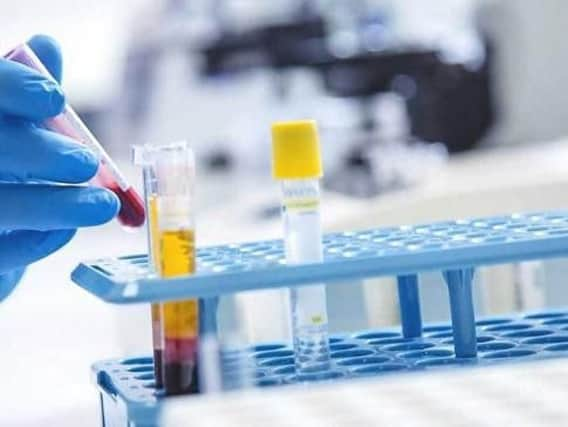One in five Wigan cancer patients discover disease too late


The survival rates of emergency admission are substantially worse than routine referrals as patients are more likely to have more advanced and difficult-to-treat growths.
Cancer Research UK has called for more awareness, better training of GPs and increased resources for the NHS to help ensure more people are diagnosed early.
Advertisement
Hide AdAdvertisement
Hide AdIn the 12 months to March, 1,686 patients were admitted to hospital with cancer in the NHS Wigan Borough Clinical Commissioning Group CCG) area,
Public Health England data show. Most will have been referred by their GP or through screening programmes.
But 327 patients - 19.4 per cent - were classed as an “emergency presentation of cancer”, meaning they were first diagnosed at the hospital, after coming to A&E, for example, or while being treated for something else.
Fiona Osgun of Cancer Research UK said it was important for patients to see their GP if they noticed a change in their body.
Advertisement
Hide AdAdvertisement
Hide Ad“Your chances of survival can change so much if the cancer is diagnosed earlier or later”, she said.
“Generally, if the symptoms are severe enough to cause an emergency presentation, it is highly likely that the cancer is advanced.
“The treatments that we know give the best chance of cure like surgery are either harder to do or aren’t medically viable at stage three or four.”
According to the latest annual Cancer Patient Experience Survey, 12 per cent of Wigan patients who went to their GP surgery with a cancer-related health complaint before they were diagnosed said they saw their GP three or four times before being told to go to hospital.
Advertisement
Hide AdAdvertisement
Hide AdA further seven per cent had five or more appointments. But the reasons behind emergency presentations are “complex” and not necessarily the result of symptoms being missed by GPs, Ms Ogsun said.
Some cancers, such as those in the brain, have vaguer or more sudden symptoms than others, while GPs are also reliant on the wider NHS system to investigate quickly after a referral.
She added: “We know that endoscopy is really stretched in the NHS at the moment for instance, and we are going to see more and more pressure placed on them with an ageing population.
“We need more workers and money across the NHS. We need action on all fronts.”
Advertisement
Hide AdAdvertisement
Hide AdIn Wigan the proportion of emergency cases has risen slightly since 2016-17, when they made up 18.4 per cent of cancer diagnoses.
According to the latest figures, covering April to June 2017, 46 per cent of patients diagnosed at Wigan CCG had stage three or four cancer. The English average was 48.